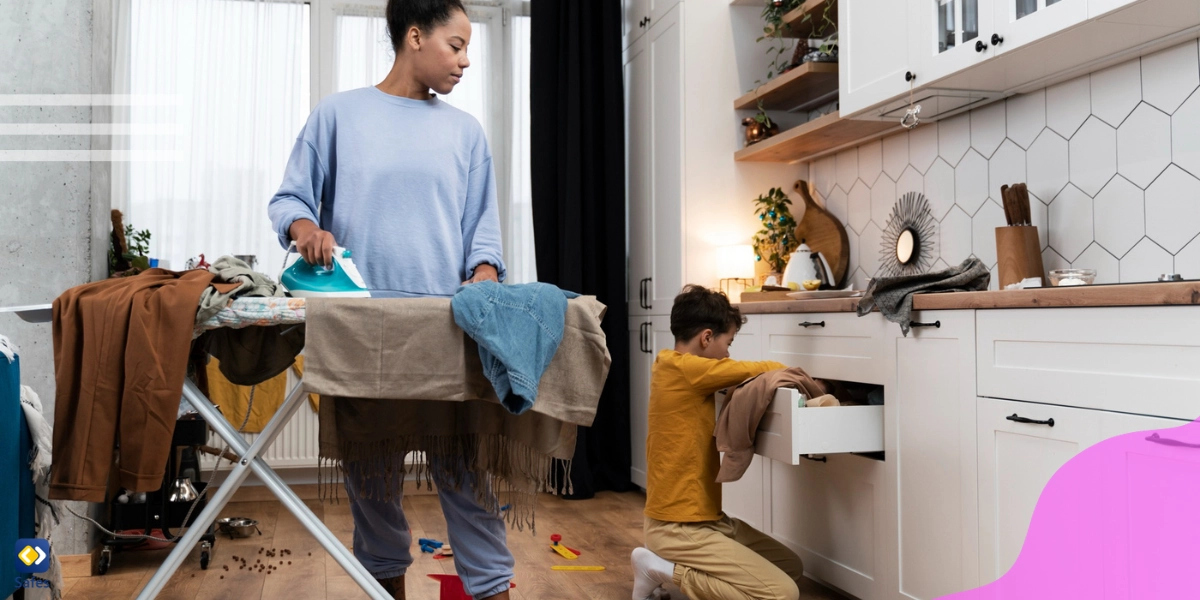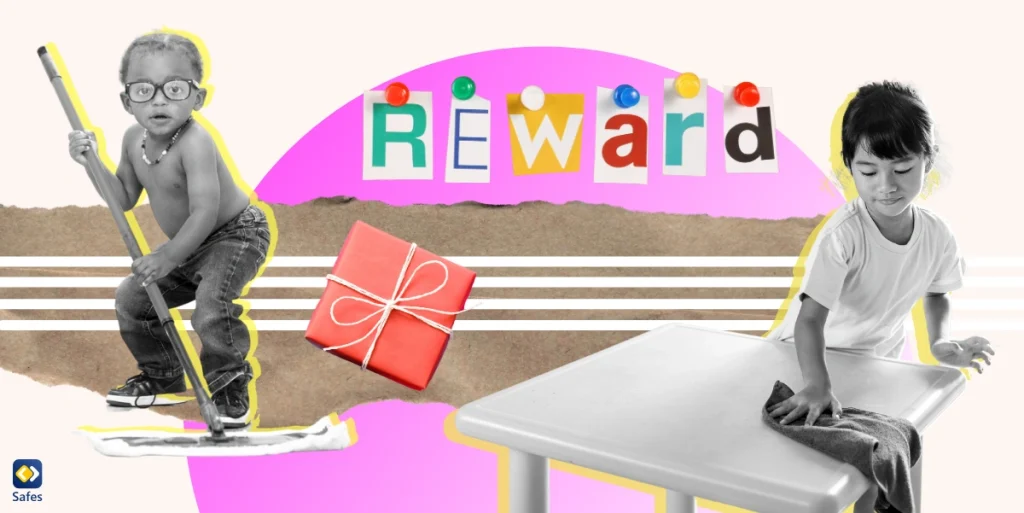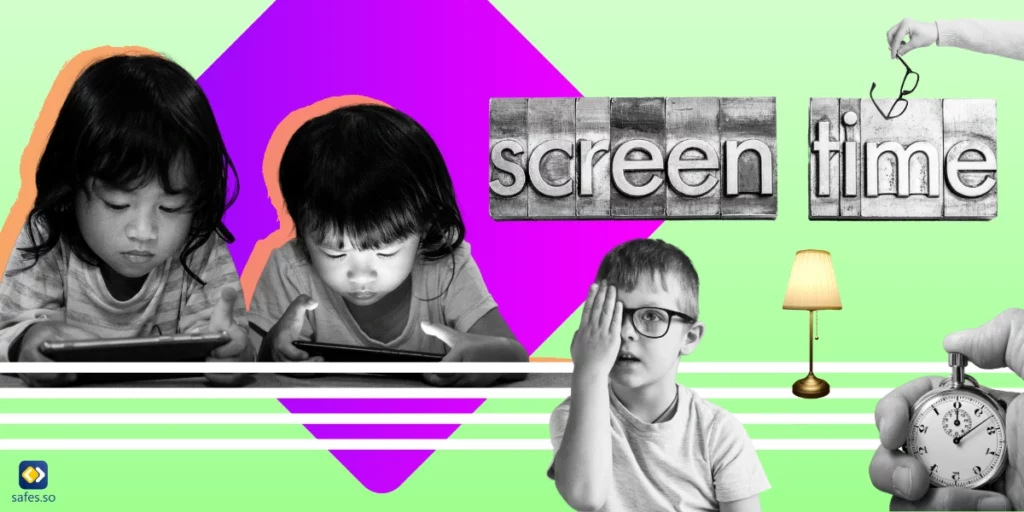Home chores are an essential part of family life, and training your child to help with them not only lightens your burden but also instills important life skills. Convincing your child to pick up a broom or wash dishes, on the other hand, is typically met with opposition. The good news is that cleaning does not have to be a difficult and time-consuming process. You can make cleaning entertaining for your child while also teaching them responsibility and collaboration by using gamification techniques. In this blog article, we’ll look at some fun and imaginative housework chore games that will get your youngster enthused about cleaning.
Cleaning Games for Kids
A great way to encourage kids to do chores is gamification. Here are three cleaning games you can play with your kids, so they learn to do their chores.
The Race Against the Clock
Making cleaning a race against time is one of the most effective tidy-up games that make doing household chores interesting for your child. Set a timer and see how quickly your youngster can tidy up their space or perform a certain activity. You may even make it a family competition by inviting other siblings to participate. This game not only makes cleaning more fun, but it also teaches your child the value of time management and efficiency.
Create a scoreboard where your child can track their cleaning times and aim to beat their personal best to give an added element of excitement. Try providing little incentives or rewards for completing duties within a certain time range. This game not only makes cleaning fun, but it also teaches your child vital time management skills that will serve them well throughout their lives.
The “Treasure Hunt” Challenge
Another great clean-up game to make cleaning fun for your child is to turn it into a treasure hunt. Make a list of objects that need to be picked up or cleaned in each area and offer it to your child as their “treasure map.” Urge them to locate and “collect” all of the items on the list. You may also spice things up by putting tiny prizes or sweets throughout the area for them to find while cleaning.
This game not only engages your child’s creativity, but it also transforms cleaning into an adventure. While kids look for their “treasures,” it teaches them to be vigilant and diligent when cleaning. It’s also a terrific opportunity to bond with your child as you participate in the hunt together. Cleaning may become a fun family activity, instilling a positive attitude toward domestic chores.

Musical Clean-Up
Music has the ability to make any work more alive and joyful. Make a “clean-up playlist” of your child’s favorite songs and play it when it’s time to make cleaning fun. Challenge your youngster to do a chore before the end of a certain song. Kids can sing, dance, and clean to the beat, transforming cleaning into a lively dance party.
You can even make it a house chores game by assigning various songs to certain cleaning duties. For example, if their favorite lively song is playing, kids may tidy up their toys, and if a slower song is playing, it’s time to dust or wash down surfaces. Not only will the music make cleaning more enjoyable, but it will also help your youngster develop a sense of rhythm and coordination. Also, when youngsters begin to identify cleaning with their favorite melodies, it’s a wonderful method to build a good relationship with cleaning.
Using a Chore Chart for Kids
Charts can be a great way to manage child development, whether they’re discipline charts, bedtime charts, or chore charts. A chore chart for kids is a visual tool or system that parents use to allocate and manage household duties or jobs that children must do. This chart is intended to assist youngsters understand their tasks, develop a feeling of accountability, and contribute to the household’s smooth operation. It usually comprises a list of age-appropriate duties for each child, with a time limit or frequency for completion. When children do their duties, they mark or check off the tasks on the chart, which allows both parents and children to track progress and celebrate accomplishments. This chart can also be used as a household chores game, so children have fun while doing DIY activities.
Here’s how the concept of a chore chart for kids works:
- Assigning Chores: Parents assign duties to their children based on their ability and developmental stage. Chores can range from basic activities such as making the bed or setting the table to more sophisticated duties such as washing the laundry or cleaning the bathroom.
- Creating the Chart: A chore chart can be as simple as a sheet of paper with a work list on it or as complicated as a colorful chart with spots for stickers or markers. It is critical to make the chart aesthetically appealing and simple to grasp for youngsters.
- Assigning Responsibilities: In the chore sheet, each child is assigned specified responsibilities. Some families swap duties daily or weekly, while others assign specific responsibilities to each child.
- Tracking Progress: Children must do their allocated duties within the time range indicated. They mark each activity as finished on the chart as they perform it. This visual portrayal of their achievements gives them a sense of success and responsibility.
- Reward System: A reward system is common in chore charts. Parents might opt to reward their children for work completion with a little stipend, privileges, or non-monetary incentives such as extra playtime or a special gift.

Using Parental Controls for Household Chores
Parental controls and parental control applications can help parents manage and motivate their children to participate in household duties and make cleaning their room fun. These tools allow parents to create chore schedules and job reminders for their children, assisting them in developing a feeling of routine and responsibility. Parents may guarantee that their children are performing their tasks by monitoring chore completion progress, creating a disciplined atmosphere for acquiring vital life skills. Furthermore, parental control applications may associate chore completion with a variety of incentives or prizes, encouraging positive behavior and teaching children the notion of earning rewards via their efforts. These tools enable parents to establish a strong work ethic and accountability in their children by simplifying the task management process.
Additionally, parental control applications like Safes can indirectly encourage chore involvement by helping parents to properly monitor screen time. By limiting screen time, parents may decrease distractions that may prevent children from finishing their responsibilities on time. This promotes a healthy mix of leisure activities and obligations in youngsters, as well as a better knowledge of time management and prioritizing.
You can use the parental controls built into the operating system of your child’s device such as:
- Windows parental controls
- Macbook parental controls
- Parental controls on android
- iPhone parental controls
You can also use Safes to operate across multiple platforms such as iOS and Android while having access to more features such as real-time location tracking, setting schedules for app usage, filtering keywords, block URLs, and more. Sign up now for a free trial of Safes and explore all its advanced features for comprehensive online safety.
In essence, parental controls and apps give parents useful tools for organizing and motivating their children to actively engage in home duties while also fostering good digital habits. Parental control apps can even be used along with household chores games.
Conclusion
Cleaning does not have to be a duty that your child dreads; instead, it can be a joyful and instructive experience using household chores games. By introducing games into the cleaning routine, you will not only make the process more entertaining, but you will also be teaching your child important life skills such as time management, organization, and collaboration. Thus, the next time your child objects to cleaning, try these domestic chores games to transform cleaning into an exciting adventure that the entire family can enjoy together.




